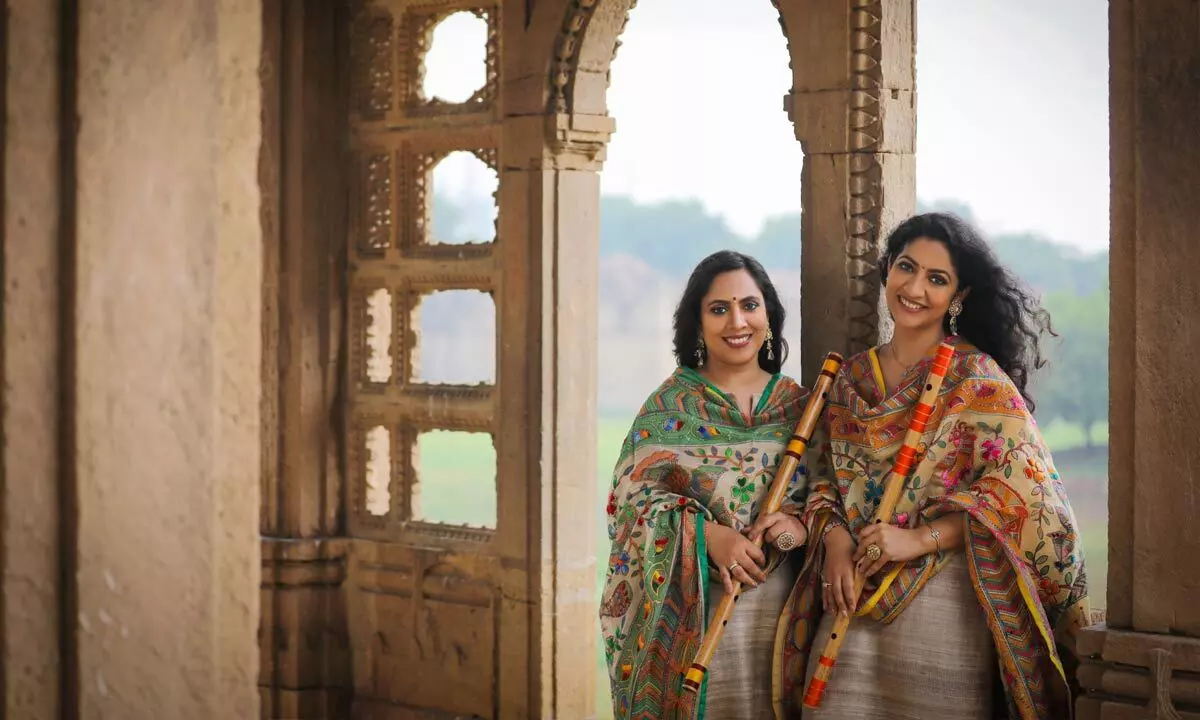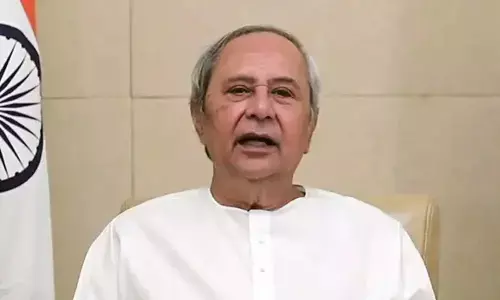Devotion and harmony: Suchismita & Debopriya on Indian Classical Music

Suchismita and Debopriya Chatterjee are a renowned flute duo celebrated for their enchanting performances and musical synergy.
Suchismita and Debopriya Chatterjee are a renowned flute duo celebrated for their enchanting performances and musical synergy. Drawing from a rich heritage, these talented sisters blend traditional Indian classical music with contemporary styles, captivating audiences worldwide. Their artistry features intricate melodies and harmonious improvisations, showcasing their deep emotional connection to the flute. With numerous prestigious performances and collaborations, they have carved a unique niche in the music scene, passionately sharing their cultural heritage.
In this interview, they share insights about the event, their unique musical journey, and their thoughts on the future of Indian classical music.
Conversation with Suchismita and Debopriya Chatterjee
Kailas Sangeet Trust is organising the ‘Acharya Devo Bhava’ concert to honor the birth centenary of Acharya Pandit Bimalendu Mukherjee. Could you share your thoughts on being part of this significant event?
This concert holds great significance for us. It’s being organized by Anupama Bhagwat, a close friend and an excellent musician. She’s doing this in honour of her Guruji, Acharya Pandit Bimalendu Mukherjee, which makes it a heartfelt tribute. We feel privileged to be part of this event, and it’s something we’re truly looking forward to. Being part of a tribute like this, dedicated to such a legendary figure, adds a sense of responsibility and honour to our participation.
Can you share a bit about how you’re preparing for this performance? What goes into getting ready for a concert like this?
Preparation for any concert involves certain decisions, especially regarding which ragas we plan to perform. But in Indian classical music, it’s important to understand that much of our music is improvised. We can’t plan every detail in advance because the flow of the concert often depends on the atmosphere of the moment, the mood of the audience, and even what the artist before us has performed. We shortlist some ragas, but the final call will only be made on the day of the concert itself. That spontaneity is what makes each performance unique.
What message do you hope to convey through your music during this particular concert?
This is a classical music concert, so there isn’t a specific thematic message. However, classical music in itself is a form of devotion and is deeply rooted in tradition. Performing for such a legendary figure’s centenary brings an additional weight of responsibility. Our goal is to stay true to the cultural heritage and tradition of Indian classical music. We want the audience to connect with the roots of this music and appreciate its purity. This is not fusion or Bollywood—this is traditional Indian classical music. If we can convey the depth and spiritual connection of this music to the audience, we will feel that we’ve succeeded.
The two of you are well-known for your unique jugalbandi (duet) performances as sisters. What has your experience been like performing together?
Performing together as sisters has been an incredibly fulfilling experience. We share not only the stage but also our emotions. After a good performance, the joy is mutual. Similarly, if something doesn’t go as planned, we both acknowledge it and work on it together. The best part of performing as sisters is the way we push each other to improve and inspire one another. There’s no competition between us—it’s about complementing each other’s strengths on stage. We try to bring out the best in one another and cover any flaws. Our journey is truly a shared one.
What is the most valuable lesson you’ve learned from your Guru that has shaped you as musicians?
Our Guruji has imparted countless lessons, but one piece of advice that always stays with us is that we should treat every concert as if it’s both our first and our last. This means preparing with the same excitement and intensity as we did for our very first concert while performing with the awareness that it could be our last. That mindset brings a lot of depth and sincerity to each performance. He also taught us not to be swayed by success or failure. If a concert goes well, it shouldn’t go to our heads, and if it doesn’t meet expectations, we shouldn’t be too hard on ourselves. Every performance is part of a bigger journey.
How do you feel performing in Hyderabad?
Hyderabad has always been special for us. The audience here is very knowledgeable and deeply appreciative of classical music. We always look forward to performing here because the atmosphere is so welcoming. Plus, we can’t forget the food—Hyderabadi biryani is always a bonus! It’s a city that holds a special place in our hearts, and we are eager to return and perform.
How important are organisations like Kailas Sangeet Trust in preserving classical music in today’s world?
Organisations like Kailas Sangeet Trust are playing a crucial role in preserving and promoting classical music. In today’s world, where people are more drawn to Bollywood and fusion music, it’s essential to have platforms dedicated to classical forms. There’s nothing wrong with other genres of music, but classical music is our heritage, and it needs to be nurtured and preserved. Concerts like these help keep that tradition alive and ensure that the younger generation understands the depth and beauty of Indian classical music.
What advice would you give to young musicians, especially women, who want to pursue a career in classical music?
The first thing we’d say is that music is not gender-specific. Whether you’re a man or a woman, if you’re dedicated and passionate, the music will speak for itself. There’s no need to feel that you’re at a disadvantage because of your gender. In our experience, if you work hard and are sincere, opportunities will come your way. However, we do want to emphasize one point: there are no shortcuts. This is something that’s important not only in music but in any field. You have to put in the work, stay dedicated, and be prepared for the long journey. If you stay true to your craft, success will follow.









